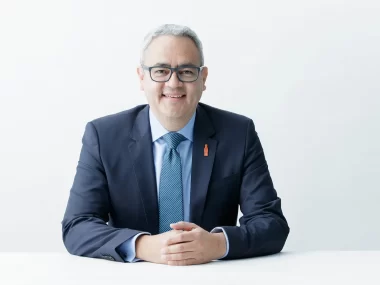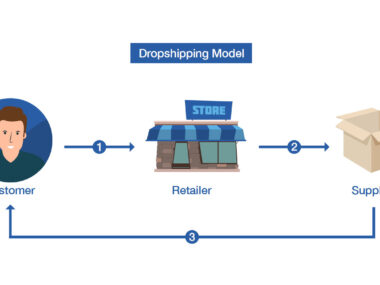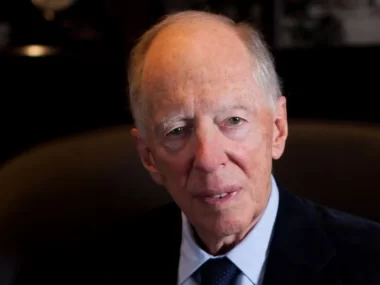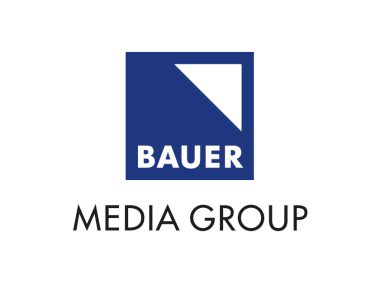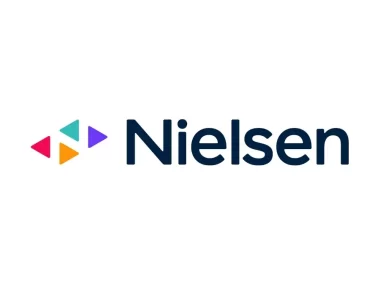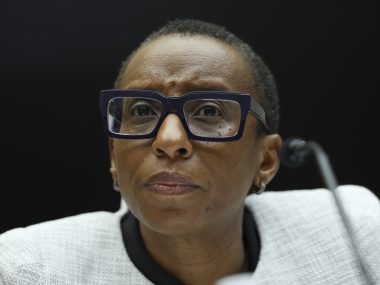|
Neubauer Coporation
Getting your Trinity Audio player ready...
|
An Interview With Ming Zhao
In the United States in 2022, fields such as Aircraft piloting, Agriculture, Architecture, Construction, Finance, and Information technology, are still male-dominated industries. For a woman who is working in a male-dominated environment, what exactly does it take to thrive and succeed? In this interview series we are talking to successful women who work in a Male-Dominated Industry who can share their stories and experiences about navigating work and life as a strong woman in a male dominated industry.
Thank you so much for doing this with us! Before we dig in, our readers would like to get to know you a bit more. Can you tell us a bit about your childhood “backstory”?
As a child growing up in India, I’m forever grateful to my parents for raising me in an atmosphere where my gender was never a barrier to what I wanted to do in the future. They instilled in me that there was no alternative to hard work and placed a strong value on our education.
Can you tell us the story about what led you to this particular career path?
I was a straight A student with a very analytical mind. I always gravitated toward traditional fields such as medicine or engineering and ended up choosing engineering because of a knack towards problem solving. In early part of my career, I took the challenging leap to independent consulting. This new role allowed me direct exposure to senior management and a view into the type of leadership position that I wanted to be in one day. My desire to be the ‘decision maker’ took me from consulting to business school and then to corporate roles within financial services.
It was during those formative years post college that I was able to work in a few different industries that helped me identify my goals and ultimately lead me to where I am today.
Can you share the most interesting story that happened to you since you began your career?
My story of breaking into corporate America is one that I’m sure many female immigrants can relate to. At the beginning of my career, I wanted to work in product marketing, but I was discouraged from doing so because of my natural ability with numbers and math in addition to having an engineering degree. I was repeatedly told that I should pursue those things and that I wasn’t the ‘marketing type’. I started to feel as though my career path was being decided for me, based solely on my appearance instead of the things that really mattered — my experience, my ability, and my passion. Thankfully, I’m not easily discouraged so I found my way into a product marketing role, and today I run a business line. I am thrilled to be here, getting to do what I always knew I could do successfully. The microaggressions I encountered along the way motivated me to work even harder for what I knew I really wanted to do.
You are a successful business leader. Which three character traits do you think were most instrumental to your success? Can you please share a story or example for each?
Most importantly, I try to have a confident, transparent leadership style. Being a confident leader is not about knowing everything or being the best at everything. Sometimes, it’s about being open to listening to the expertise of others, how to find the right talent to get the job done, and how to spur creativity through motivating your team.
It’s also important to be human. At TD, we pride ourselves in being “unexpectedly human” , and this translates into what we offer our customers, and how we treat our employees as well. The pandemic has furthered the notion that one’s career isn’t the only aspect of their life, and leaders need to recognize this, be genuine and connect with employees about things both inside and outside of work. Investing in relationship helps create a strong followership and teams who trust you!
Finally, while patience is a virtue, sometimes impatience can help drive business results. I don’t like to rely on the status quo — something can always be innovated or improved. This also means not taking no for an answer when trying to achieve our goals. It’s important to be solution-oriented and keep fighting even when we fail, so resilience is key.
Ok, thank you for that. Let’s now jump to the primary focus of our interview. Can you help articulate a few of the biggest obstacles or challenges you’ve had to overcome while working in a male-dominated industry?
As a woman in the workplace, I faced a lot of competing priorities. While male colleagues would grab dinner or drinks after work or play a long round of golf on the weekends, I was spending my non-working hours with my young children. It can be difficult to build relationships at work when raising a family takes equal priority, which is the case for many working mothers.
Being left out of these opportunities, I had to rely on my confidence and expertise to get ahead. Early in my career, I often experienced male colleagues interrupting me or taking credit for my work. While it’s important for men to be allies to women and improve this behavior, I also had to learn to stop overanalyzing and speak with conviction to let my voice be heard. I realized that I truly am a subject matter expert, and what I say has value and is worth listening to!.
Can you share a few of the things you have done to gain acceptance among your male peers and the general work community? What did your female co-workers do? Can you share some stories or examples?
As I mentioned, I really worked to build up my confidence. One saying that resonates with me is, “Everyone is a leader if you think of yourself as a leader.” The fact is that many men think of themselves as leaders and act accordingly. This is less common among women, even when we are extremely qualified. I do my best to mentor other women at TD and in the industry and empower them to speak up for themselves and not to shy away from advertising their accomplishments
Part of gaining more confidence is learning to let my work speak for itself. I know that I have extensive experience, so when I make an informed recommendation or plan of action, I focus on presenting the facts and making the most out of the opportunity to share my views.
What do you think male-oriented organizations can do to enhance their recruiting efforts to attract more women?
Despite recent strides, corporate America is still struggling with a gender gap. These companies need to foster an environment where women can succeed and feel empowered. This means investing in things like promoting or hiring more women into senior leadership positions, being transparent and proactive about equal pay initiatives, and promoting a more flexible working environment.
The latter point is one of the silver linings that has emerged from the pandemic. People are now more open to speaking about work-life balance. Hybrid or remote working can also allow women (and all parents) more flexibility in getting their work done while having time to spend with their families. Leaders looking to attract more women to their workforce should recognize this and encourage a transparent dialogue as part of their company’s culture.
Ok thank you for all of that. Here is the main question of our interview. Based on your opinion and experience, what are the “Five Things You Need To Thrive and Succeed as a Woman In a Male-Dominated Industry?” (Please share a story or example for each.)
Trust your skills: You must be confident in your knowledge. Your knowledge holds power so don’t be afraid to be assertive and make decisions.
Seek out invested mentors: Find mentors and allies who are invested in you and your future. They don’t have to be women. Most of my mentors were men, but they were invested in helping me succeed — a key aspect in any corporate setting.
Know your worth: Don’t shortchange yourself or compare yourself with others. Once you understand the value you bring to your company, focus on where you can help immediately.
Come out of your comfort zone: This is not always the easiest, especially when it comes to promoting or advocating for yourself in a work setting. It’s an ongoing challenge and one that I continue to work on.
Stay curious: Never stop learning or taking calculated risks. When you trust yourself and feel empowered to take appropriate risks, the results are that much more rewarding.
If you had a close woman friend who came to you with a choice of entering a field that is male dominated or female dominated, what would you advise her? Would you advise a woman friend to start a career in a field or industry that’s traditionally been mostly men? Can you explain what you mean?
I would absolutely encourage female friends to enter a traditionally male dominated field. It’s all about trusting yourself, and your skills and aligning yourself with mentors to advocate for you and help grow your knowledge of the space. I believe this is how we bring about change in these historically male dominated fields, as more and more women venture into these fields, they not only bring in diversity but also add a female perspective, which can be a powerful source of new ideas and the ability to approach business needs from a unique point of view.
Have you seen things change for women working in male dominated industries, over the past ten years? How do you anticipate that it might improve in the future? Can you please explain what you mean?
Things have certainly changed within the banking industry since I started my career over two decades ago. Large corporations are making the shift to uncover opportunities to incorporate more diverse talent into leadership positions. Its encouraging to see how many companies are now focused on creating an environment that is inclusive, focused on women’s needs, and are promoting the importance of work life balance, flexible work schedules, and childcare benefits. It’s encouraging to see that almost all companies have various women support and mentoring groups as well.
I can share a personal experience on this topic; While interviewing for different positions in the financial services industry over the years, most of my interviewers were men. When I assumed more of a leadership position, I knew I wanted to change this. I worked with my leadership team to ensure candidates were met with a diverse set of leaders who had the opportunity to weigh in on their interview process. This allowed for both a more balanced evaluation of the candidate, as well as demonstrated to the candidate that we had a diverse workforce.
We are very blessed that some very prominent names in Business, VC funding, Sports, and Entertainment read this column. Is there a person in the world, or in the US with whom you would love to have a private breakfast or lunch with, and why? He or she might just see this if we tag them.
There are two women in business whom I greatly look up to. The first is Indra Nooyi, former CEO of PepsiCo. She attributes her career success to realizing early on that she needed to work hard, break free from stereotypes, and leave no stones unturned. She has shown me is nothing a woman cannot achieve when she puts her heart to it; As a fellow Indian woman, I have always looked up to this exemplary role model for women of all ages and backgrounds.
The second is Carla Zakhem Hassan, the current Chief Marketing Officer of JP Morgan Chase. She is also an immigrant and a person of color, who often discusses the importance of being true to who you are and of being an empathetic leader. In reading interviews with her and watching her success, I’ve been inspired by her mentality and what she has achieved as a woman of color in the banking industry.
Thank you for these fantastic insights. We greatly appreciate the time you spent on this.


